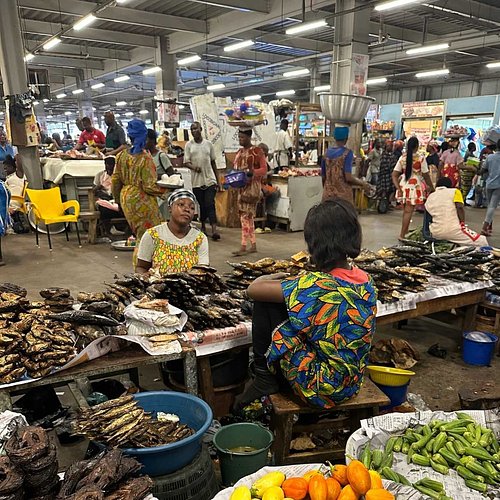The Government of Ghana has unveiled an ambitious plan to construct 24-hour ultramodern markets in all 261 Metropolitan, Municipal, and District Assemblies (MMDAs)—a sweeping initiative set to redefine local commerce and power the country’s “24-Hour Economy” agenda.
Announcing the project in Accra, the Minister for Local Government, Decentralisation and Rural Development, Ahmed Ibrahim, described it as one of the most transformative infrastructure programmes in Ghana’s recent history.
“Our goal is to turn every district market into a safe, modern, and fully functional trading hub that operates efficiently day and night,” the minister said.
Construction of the new markets is expected to begin in December 2025, with a target completion date of December 2027 for districts that have secured land.
The new 24-hour markets will go far beyond being trading centres. They are envisioned as multi-purpose commercial complexes equipped with:
- Modern sanitation and waste management systems
- Reliable water supply and drainage networks
- Hygienic vendor spaces
- Smart lighting and security infrastructure for night operations
The facilities will allow traders to operate safely around the clock — boosting productivity, attracting investment, and promoting flexible business models.
The inclusion of all 261 MMDAs in the rollout underscores the government’s commitment to balanced national development. The initiative aims to create thousands of jobs, particularly for women and young entrepreneurs, through vending, logistics, cleaning, and market management.
“We want every district—urban or rural—to benefit. These markets will not only boost local economies but also create decent, sustainable employment,” Mr Ibrahim stated.
The markets are a cornerstone of the government’s 24-Hour Economy policy, designed to expand employment and enhance productivity across key sectors such as retail, logistics, and services.
Economists say the project could deliver a multiplier effect — stimulating ancillary industries including transport, storage, food processing, and night-time services.
By formalising informal trading and improving infrastructure, the new markets are expected to increase local revenue mobilisation, reduce urban congestion, and enhance public safety.
Beyond economic benefits, the initiative seeks to tackle persistent challenges in Ghana’s traditional markets — poor sanitation, flooding, overcrowding, and inadequate waste disposal.
“Clean, safe, and efficient markets are vital to building resilient and liveable cities,” the minister noted.
The markets will feature environmentally sustainable designs and improved hygiene standards, helping elevate the trading experience for both vendors and consumers.
The success of the nationwide rollout will depend on effective coordination between national, regional, and district authorities. The MMDAs will play a critical role in land acquisition, construction supervision, and market management.
Analysts, however, caution that sustaining 24-hour operations will require significant investment in security, energy, transport, and sanitation. Proper funding and maintenance will be key to ensuring long-term success.
If fully realised, the 24-hour market project will transform Ghana’s retail and urban economy, bridging the rural-urban divide and empowering local communities to thrive within a modern, inclusive growth model.
The initiative marks a bold step toward a dynamic, resilient, and continuously productive Ghana, where economic activity never sleeps.
Click the link Puretvonline.com | WhatsApp Channel to join the WhatsApp channel
GOT A STORY?
Contact/WhatsApp: +233243201960 or manuelnkansah33@gmail.com

